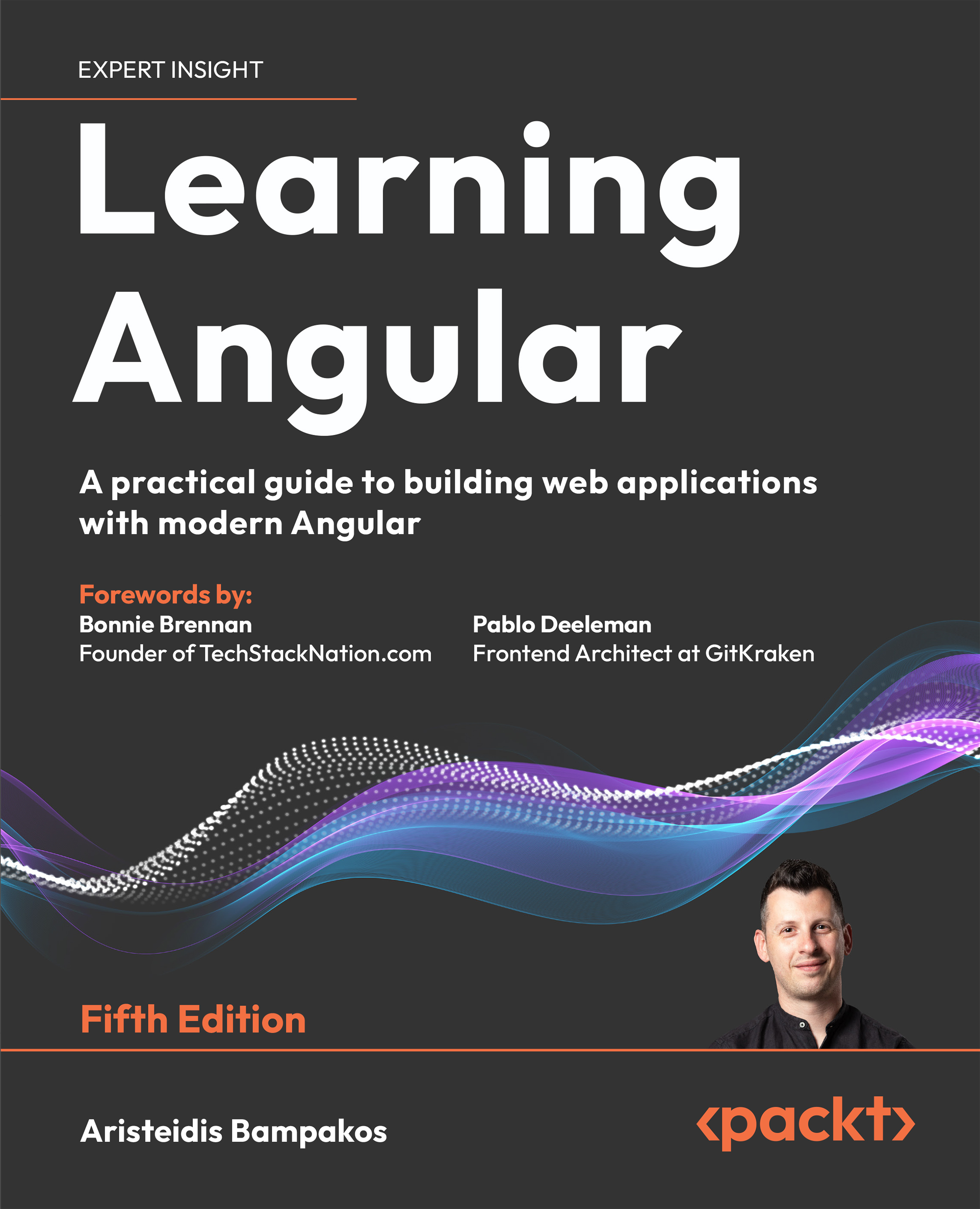-
Explore and build complete, easy-to-follow web projects using Blazor. Each project includes a video example too.
-
Test your skills in building a weather app, an expense tracker, and a Kanban board with real-world applications.
-
Develop a deeper understanding on how to work with Blazor WebAssembly without spending too much time focusing on the theory.
Blazor WebAssembly helps developers build web applications without the need for JavaScript, plugins, or add-ons. With its continued growth in popularity, getting started with Blazor now can open doors to new career paths and exciting projects – and Blazor WebAssembly by Example will make your first steps easier. This is a project-based guide that will teach you how to build single-page web applications with Blazor, focusing heavily on the practical over the theoretical by providing detailed step-by-step instructions for each project. The author also includes a video for each project showing her following the step-by-step instructions, so readers can use them if they're unsure about any particular step.
In this updated edition, you'll start by building simple standalone web applications and gradually progress to developing more advanced hosted web applications with SQL Server backends. Each project will cover a different aspect of the Blazor WebAssembly ecosystem, such as Razor components, JavaScript interop, security, event handling, debugging on the client, application state, and dependency injection. The book’s projects get more challenging as you progress, but you don’t have to complete them in order, which makes this book a valuable resource for beginners as well as those who just want to dip into specific topics.
By the end of this book, you will have experience and lots of know-how on how to build a wide variety of single-page web applications with .NET, Blazor WebAssembly, and C#.
This book is for .NET web developers who want to leverage the power of .NET and C# to write single-page web applications using Blazor WebAssembly without using JavaScript frameworks. To get started with this book, you’ll need at least beginner-level knowledge of the C# language, .NET framework, Microsoft Visual Studio, and web development concepts.
-
Discover the power of the C# language for both server-side and client-side web development
-
Build your first Blazor WebAssembly application with the Blazor WebAssembly App project template
-
Learn how to debug a Blazor WebAssembly app, and use ahead-of-time compilation before deploying it on Microsoft's cloud platform
-
Use templated components and the Razor class library to build and share a modal dialog box
-
Learn how to use JavaScript with Blazor WebAssembly
-
Build a progressive web app (PWA) to enable native app-like performance and speed
-
Secure a Blazor WebAssembly app using Azure Active Directory
-
Gain experience with ASP.NET Web APIs by building a task manager app
 United States
United States
 Great Britain
Great Britain
 India
India
 Germany
Germany
 France
France
 Canada
Canada
 Russia
Russia
 Spain
Spain
 Brazil
Brazil
 Australia
Australia
 Singapore
Singapore
 Hungary
Hungary
 Ukraine
Ukraine
 Luxembourg
Luxembourg
 Estonia
Estonia
 Lithuania
Lithuania
 South Korea
South Korea
 Turkey
Turkey
 Switzerland
Switzerland
 Colombia
Colombia
 Taiwan
Taiwan
 Chile
Chile
 Norway
Norway
 Ecuador
Ecuador
 Indonesia
Indonesia
 New Zealand
New Zealand
 Cyprus
Cyprus
 Denmark
Denmark
 Finland
Finland
 Poland
Poland
 Malta
Malta
 Czechia
Czechia
 Austria
Austria
 Sweden
Sweden
 Italy
Italy
 Egypt
Egypt
 Belgium
Belgium
 Portugal
Portugal
 Slovenia
Slovenia
 Ireland
Ireland
 Romania
Romania
 Greece
Greece
 Argentina
Argentina
 Netherlands
Netherlands
 Bulgaria
Bulgaria
 Latvia
Latvia
 South Africa
South Africa
 Malaysia
Malaysia
 Japan
Japan
 Slovakia
Slovakia
 Philippines
Philippines
 Mexico
Mexico
 Thailand
Thailand















